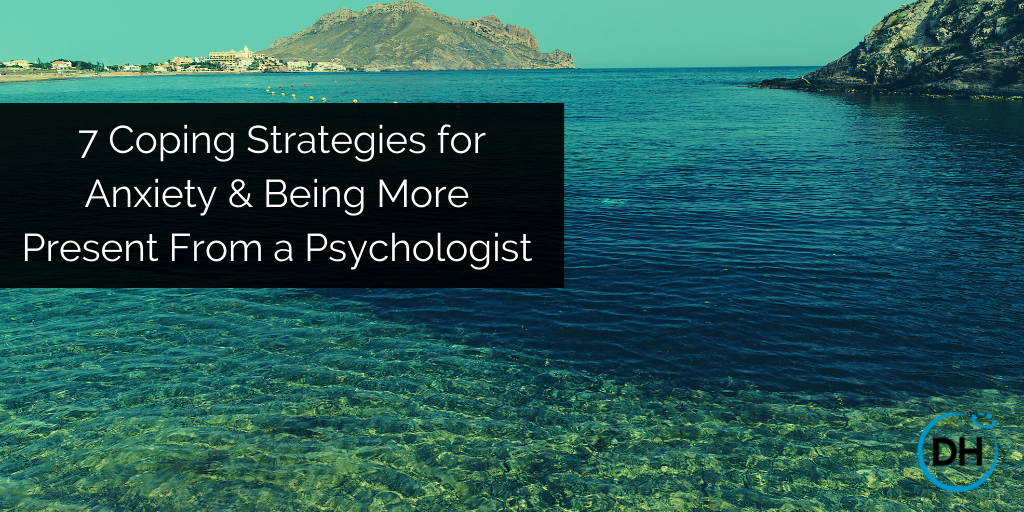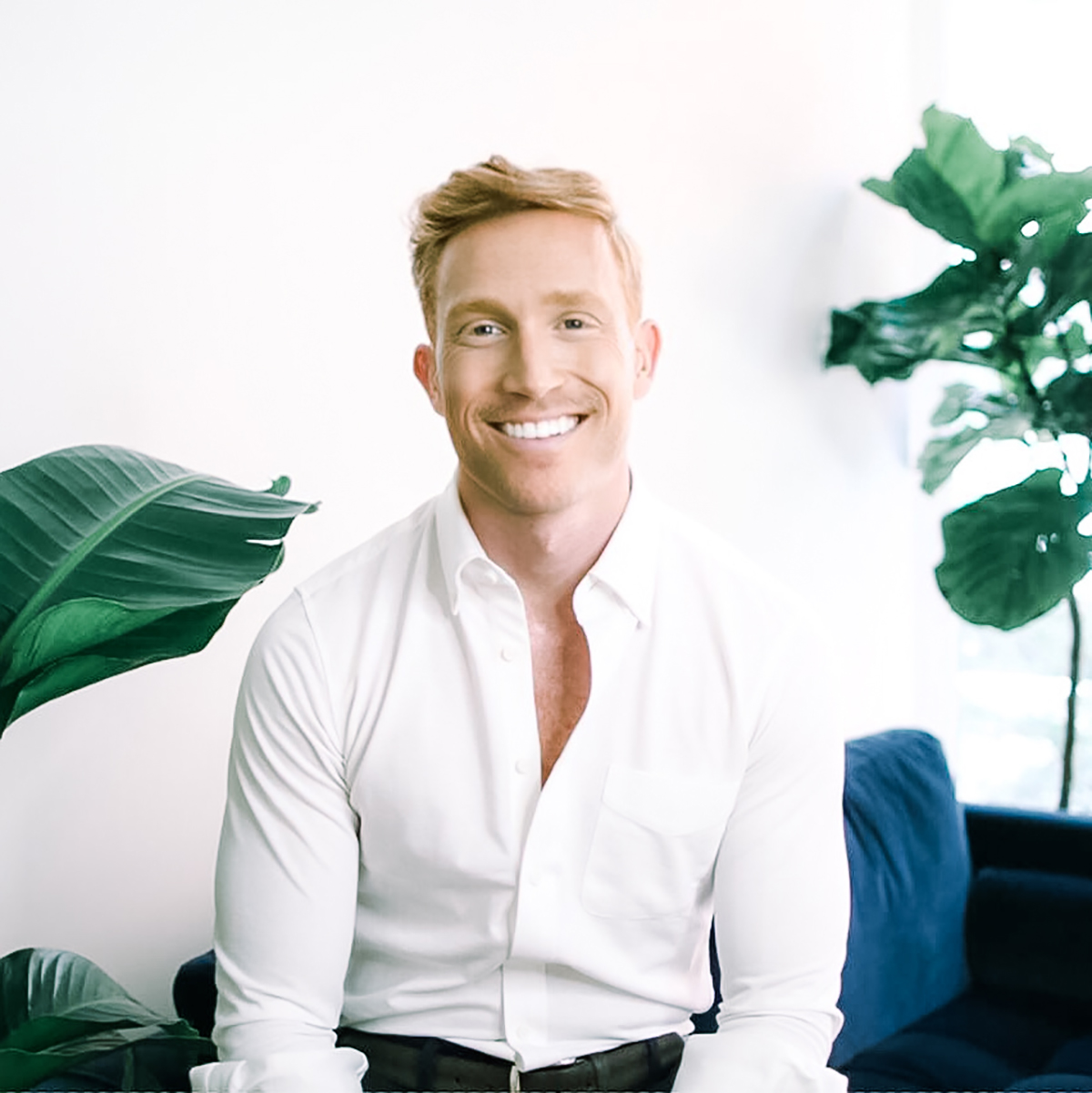
People are grappling with reentry anxiety in this new era after the height of the pandemic. We need to get creative with how we take care of ourselves. And while many may not speak about it publicly [primarily for professional reasons], therapists experience anxiety in their personal and professional lives that requires them to get creative with how they take care of themselves.
As a practicing psychologist, I sometimes struggle to be fully present, especially when I'm running on empty myself. As we've all experienced, it's sometimes easy to lose sight of the importance of your self-care when you're so focused on others.
I would like to share some ideas and personal practices that have helped me feel more grounded, centered and energized during times of my life where I've been more anxious and less present. I hope that by sharing my personal self-care practices you may be compelled to adopt these tools in your journey of self-care.
When I have a lot on my mind, I frequently find myself "time-traveling" or stepping outside of the present moment. I either replay a past event in my mind or project some imagined catastrophe in the future.
"Time traveling" with our thoughts is a potential rabbit hole, and diving headfirst into it won't help soothe your mind. Given the emphasis on productivity, forecasting, and projections in modern life, it's understandable that people struggle to live in the present moment when our attention is directed at the fantasy that our liberation lies in the future.
The reality is that whenever we leave the present moment, we create problems for ourselves and others. The only time that truly exists is now. This can be difficult to remember and practice when we're hyper-focused on looming obligations and deadlines and a wish that we will eventually "arrive" at happiness.
How I cope: When I find myself "time traveling," I remind myself that the only time that matters is this very moment. We exist in this moment, and life is happening now. It's not happening in the past, and it's not happening in the future.
Some of my favorite mantras that bring me back and ground me in the present are one-word statements such as "release" or "now." A more developed mantra might be something like:
The beauty of each of these mantras is an opportunity to reset yourself and start new. They serve me incredibly well during times of stress when I'm feeling lost or lacking clarity. The critical piece is to evolve the mantra to fit your own needs.
In general, I find myself moving quickly between tasks and different self-states throughout the day and week. Working therapeutically with creatives, entrepreneurs, other therapists, and being a small business owner, I have to keep this in mind and be careful not to bring my anxiety into my work with people, including clients, associates, and people in my personal life.
How I cope: I try to be a bit more compassionate and forgiving toward myself. Unless I'm more attuned to myself in the present moment, I'm usually unaware of the self-critical or judgemental thoughts that I sometimes tell myself. We indeed can be our own worst enemies. When this happens, I tell myself to turn up the volume on my self-awareness of my inner dialogue and remind myself to be more compassionate.
What am I telling myself? What would I say to a friend or colleague who's experiencing similar guilt over hyper-productivity, feeling burnt out, or struggling to be more present? Would you tell your friend to do more than what they feel they can right now? Of course not.
In practicing this, I treat myself as I would a client, trusted colleague, or loved one and challenge self-defeating thoughts, especially those that include "shoulds" and "musts."
Like most people before this crisis, I was suffering from a fair degree of burnout. Ironically, the pandemic forced many of us to take a moment to pause and catch our proverbial breath. I used that time to give myself permission to be still and appreciate the natural ebb and flow of life. Since the world has slowly been reopening, I continue to find a restorative opportunity to use stillness to reset wherever I can.
How I cope: Instead of dwelling on the negative feelings of burnout or stress, I remind myself of some of the positive lessons learned from "Great Pause." I still allow myself to have quality time reconnecting with family and loved ones, find awe in nature, and to simply give myself time to put unfulfilling and draining tasks on pause and breathe a bit deeper.
Over the past year, I've had profound moments of clarity in acknowledging my own vulnerability. I've found myself reflecting on how precious life is and how vulnerable we all can be. A benefit of being open and vulnerable with others is that it allows us to feel cared for and heard.
How I cope: I've been speaking more candidly with people about my own vulnerability. As a therapist taught to strive to be a perfectly neutral "blank" slate, this shift has been refreshing and has taken my therapeutic work to a more relational level. If my clients ask, I've allowed myself to be more relatable by choosing to share some of my personal experiences during this time as we all find our way through.
Therapists aren't superhuman, and I like to acknowledge that, yes, sometimes things are complicated, and maybe we're not doing this perfectly, but we're doing what we feel compelled to do to cope.
By being vulnerable, I hope to permit others to speak openly, be seen and held, and receive a deeper, more humane, and authentic level of connection and support. It's not always easy to be vulnerable. Still, this shift has reminded me that authenticity and demonstrating the vulnerability of my own humanity has value in making people feel less alone.
How we start the day influences how it unfolds. In remembering this, I take a few moments at the start of each day to consider all I have to be grateful for. It's a wonderful way not only to take stock of my life but to practice mindfulness, reduce my anxiety, and increase gratitude for life.
How I cope: To not feel so weighed down during periods of stress or uncertainty, I take time to identify what I'm grateful for and what creates joy. Simply reframing my perspective and acknowledging the good around me is critical to staying balanced when things are tough. It's so easy to get sucked in a doom-and-gloom mindset, so it's essential to have tools ready to challenge that mentality.
I know from my studies that controlled breathing exercises can do some pretty amazing things. They can drastically reduce stress hormones and lactic acid flowing in your body, lower your blood pressure and heart rate, nudge blood flow back into equilibrium, improve immune function, and increase feelings of wellbeing. Even with this knowledge, though, I often forget to put these exercises into practice.
How I cope: When I'm stressed, I focus on the sensations in my body. I notice how my body tenses, and my breathing becomes shallow. And when I'm relaxed, I pay attention to how my breathing becomes deeper and more restorative.
We each have the power to move out of distress patterns more quickly if we harness the power of our breath. By consciously moving my breathing from my chest to my abdomen, using the diaphragm, I'm able to move the nervous system into its more relaxed parasympathetic mode, giving myself a chance to just "relax."
At night right before bed—or while I'm in bed—I tense up my body, relax it, and then find some visualization to help soothe me. This can be especially effective for people who have difficulty falling asleep.
I've discovered that demonstrating forgiveness for myself and others opens up my life tremendously. Every act of kindness in the world counts, and this is a time when the world needs kind gestures now more than ever. Love is an act of will and consciousness. It's not passive; it's an active decision to see the goodness in yourself, others, and the world despite all its dysfunction.
How I cope: I like to remind myself how much of the world would be better if we extended love and kindness to our primary purpose. We can choose to aspire to demonstrate compassion to those around us, especially by being conscientious of people who are at risk and vulnerable.
I often ask myself the simple question, "What can I do to impact someone else's life today positively?" Simply by forgiving ourselves for any mistakes we've made and dissolving any resentment we may feel toward others, we perform acts of kindness.
I place therapists at the center of the work within my practice because they're a critical source through which healing happens in therapy. I know that in taking care of them, they'll be able to take care of their clients and their work, and I trust that I'll be taken care of in return.
During periods of stress, we all function and cope differently. When we're anxious, it's easy to get sucked into negative thought patterns which pull us out of the present. Given the uncertainty of the challenges that lie ahead, it's essential to have tools ready to challenge that mentality.
The good news is that there are actionable steps you can take today to the ground and soothe yourself. We each need to create our unique recipes, so I hope that some of these practices resonate with you and that you can experiment with these techniques to see which ones fit.

Bio: Dr. Logan Jones is an NYC-based psychologist and the founder of Clarity Therapy NYC. He is a bold, grounded, expressive, and compassionate motivator with fresh perspectives on living a more fulfilling life. He draws from a mix of lived experience, professional conviction, clinical acumen, and down-to-earth wisdom gained from sitting for thousands of hours with clients and other therapists to make the topic of mental health and wellness more relatable, understandable, and universally normalized.